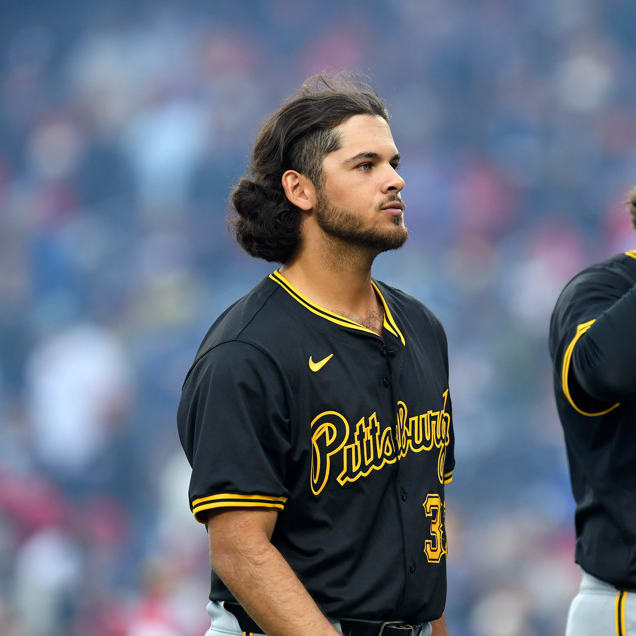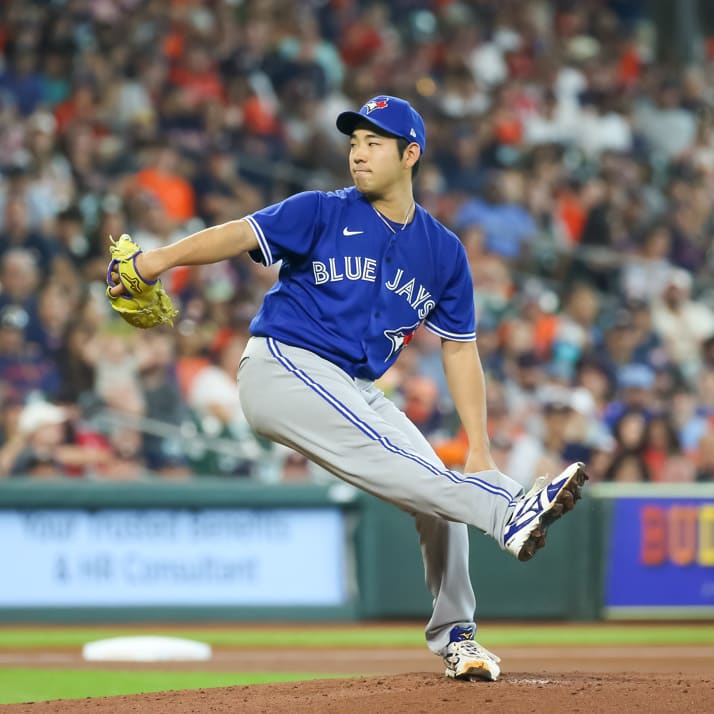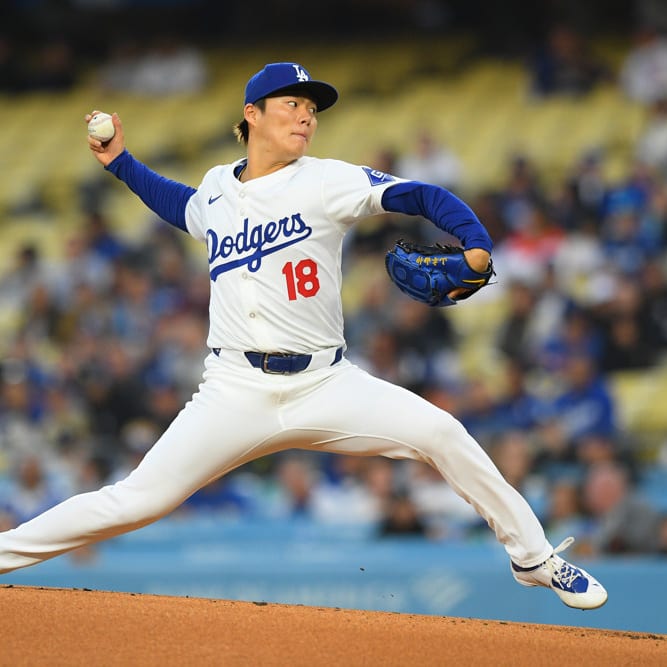This article is part of our The Z Files series.
Every now and again it's fun to return to your roots which, for me, is perhaps surprisingly the human element of fantasy sports. Granted, it wasn't long before Excel became my mistress, but early on the focus was on trade tactics and the like. It's with that backdrop I bring you Todd's Tricks of the Trade, hopefully with a few twists not included in the myriad of other like columns all over the Internet.
1. That small rectangular thing is for more than taking selfies
The majority of cameras nowadays double as phones. For those unclear on the concept, a phone is a device by which human beings can communicate via their voice. Each is assigned a ten-digit number. After the first person presses those numbers into their camera, the recipient's camera plays an obnoxious ring tone set unknowingly by a teenager as an alert someone wants to talk. Each party then speaks into their camera and conversation ensues. Or, the second person purposely doesn't pick up and follows up with a text message a little while later.
Here's the deal gang. Modern technology is great. There's a whole generation, soon-to-be two, whose primary form of communication is texting using abbreviations for words we get-off-my-lawn types needed to learn how to spell. While you kids are texting trade offers back and forth, we old fogies are doing it the old-fashioned way - after getting tired of waiting for an e-mail reply, calling the other party on our land lines.
Aside
Every now and again it's fun to return to your roots which, for me, is perhaps surprisingly the human element of fantasy sports. Granted, it wasn't long before Excel became my mistress, but early on the focus was on trade tactics and the like. It's with that backdrop I bring you Todd's Tricks of the Trade, hopefully with a few twists not included in the myriad of other like columns all over the Internet.
1. That small rectangular thing is for more than taking selfies
The majority of cameras nowadays double as phones. For those unclear on the concept, a phone is a device by which human beings can communicate via their voice. Each is assigned a ten-digit number. After the first person presses those numbers into their camera, the recipient's camera plays an obnoxious ring tone set unknowingly by a teenager as an alert someone wants to talk. Each party then speaks into their camera and conversation ensues. Or, the second person purposely doesn't pick up and follows up with a text message a little while later.
Here's the deal gang. Modern technology is great. There's a whole generation, soon-to-be two, whose primary form of communication is texting using abbreviations for words we get-off-my-lawn types needed to learn how to spell. While you kids are texting trade offers back and forth, we old fogies are doing it the old-fashioned way - after getting tired of waiting for an e-mail reply, calling the other party on our land lines.
Aside from the fact it's fun to talk baseball with a fellow passionate fan, the amount of information one can glean via a conversation trumps that via electronic means. You can often learn useful tidbits by talking baseball in general, let alone an actual trade discussion.
Even better than the phone is face-to-face discourse. And no, Skype or FaceTime isn't the same thing, though it's better than a simple text or e-mail. Just remember, if you're talking with me, the camera adds a couple… hundred pounds.
2. Negotiate first, propose later
Given that the majority of trades will still be handled electronically and not orally, at least do the negotiation via an exchange of e-mails or texts and not via your scoring service's trade mechanism. That features facilitates your commissioner's duties but should be reserved for the agreed-upon deal and nothing else. Sure, most mechanisms include a counter feature and not just a reject button, but still, this is taking an already impersonal act to an even more inhuman level.
The key to all trades is finding the best meeting point. Exchanging names without context either takes way too long or ends before something can be worked out. There's a fine line between divulging too much and subtly dropping hints. However, if both parties employ quid pro quo, then ample information is exchanged to land on a symbiotic swap.
3. Always let everyone know, well, almost always
While it is always a wise to peruse rosters for potential trade partners and approach them individually, alerting the league you're looking to make a deal often opens up avenues you may have missed, or assumed weren't even there. Admittedly, this is hard to do via a phone call so here's an instance where e-mail is the optimal method. In lieu of e-mail, some like to post intentions on their league message forum. This is great if it also gets distributed to the league via e-mail, but realize not everyone checks the site forum regularly, if at all.
A common shortcoming of cattle call trade announcements is putting a player on the table and soliciting offers. Focusing on a specific player gives the impression he's the only one available. Chances are that's the player you desire to deal but by declaring that, you may miss out on a different swap that's even more beneficial to your squad. The best opening is detailed enough to pique interest but sufficiently vague to result in a discussion where various ideas can be spitballed.
Ending with "make me an offer" is a huge turn-off for some. What are you looking for in terms of stats or positions? While the intent is to have the other person show their hand, it often backfires as some may just lay them down and fold. As mentioned earlier, the best deals benefit both sides. Asking for an offer without some measure of discussion is counter-productive, often resulting in a proposal that makes no sense and is thus one you'll reject. The bummer is there's almost always one you'd take, but it never had a chance to surface without some discourse.
"Hey everyone, looking for a boost in speed and with a couple of the recent changes, I have some saves to deal. So if you don't want to burn your waiver priority on the next Dalier Hinojosa, get in touch and we can discuss."
The only scenario where intentions should be covert is when there's a perfect deal involving a player others likely covet and you don't want to give the other party a chance to shop that player around. Truth be told, the other person should always do just but sometimes you can catch them off guard with a perceived godfather offer. Approaching someone individually with an offer and a salient explanation why it's beneficial can often earn a quick acceptance without the party opting to see if there's something better out there. This is particularly relevant in a dump (present for future) deal.
4. It's not about winning the trade, it's about improving your team
A trade is not about the value-in-a-vacuum of the associated players. Trades are about comparing the point-scoring potential of your entire roster before and after the deal. This entails including all balancing moves in your analysis as many deals require other moves to yield a legal roster. Perhaps you're dealing away two players whose combined static value exceeds that of the one you get in return, but your team is better overall since one of the two was a pitcher and you're sitting on Jose Berrios in reserve. Or maybe it's later in the season and you're locked into a spot in the standings where you can neither gain nor lose points in stolen bases, but are within range of a couple of home run and RBI points. Dealing a stud speedster with no pop for a power hitter perceived to be less valuable than your stolen base specialist can lead to more points. The opposite is also true, but it's rarer to be locked into multiple categories, even if they piggyback onto each other.
5. Everyone loves choices
This is perhaps the most under-utilized yet effective tactic in trade negotiations. Despite what has been written above, too many want to be in control in an effort to win a trade. The best way to cede control without actually doing so is via choices. Don't propose a specific player (or players) for a specific return, even after exchanging some thoughts to discern what each side wants. Come up with a few players you'd deal and a few you'd be happy with coming back, such that whatever the other side chooses, you're satisfied with the agreement. Maybe one or two players on each side is set in stone based on the negotiations. Offer choices for the player(s) being exchanged so both parties can field a legal lineup.
Offering choices accomplishes two goals. It gives the impression of handing control to the person making the final call on the players involved in the deal. But here's the thing, you've predetermined that you're amenable to whatever is selected. They think they're running things, but all they're doing is picking something you're fine with. The other huge benefit is of all the combinations, there's one you hope they take and one you're crossing fingers they don't. You'd be shocked how many times the agreed-to deal is one of the options you're happiest they choose. If you simply offered the one you hope they bypass, it may have been accepted and you'd never know there was something else out there they liked more that you'd prefer the accept.
Well, there you have it, a blast from my past. As implied, there's a ton of bandwidth dedicated to trade dynamics. Instead of rehashing all of that, a few aspects of trading that are overlooked were shared, assuming you know all the other stuff. As always, I'm happy to continue this discussion in the comments section. Until then, please excuse me, I have a call to make.










